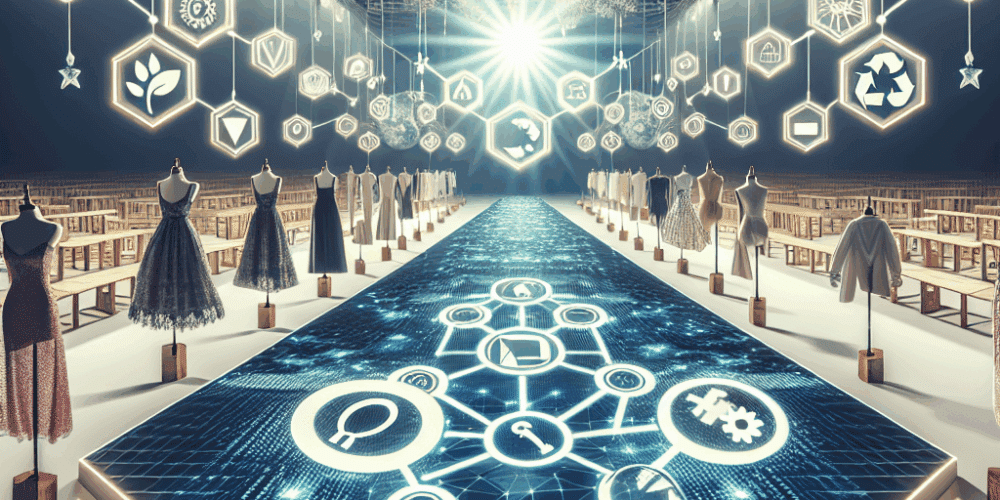In a groundbreaking development in the fashion industry, several leading global fashion brands have announced the integration of blockchain technology to enhance sustainability efforts and combat counterfeiting. This move marks a significant shift towards greater transparency and ethical practices within the industry.
The fashion world, often criticized for its environmental impact and association with labor abuses, is turning to blockchain as a solution to these persistent issues. By utilizing blockchain’s decentralized and tamper-proof ledger, brands can now trace the lifecycle of a product from raw material to retail, ensuring that every item is produced ethically and sustainably.
Blockchain: A Tool for Ethical Fashion
The primary appeal of blockchain in fashion lies in its ability to provide a detailed and immutable record of every transaction and movement of goods within the supply chain. This means consumers can verify the origins of their clothing, including where and how it was made, thus promoting fair labor practices and environmental responsibility.
Major brands like Gucci, Prada, and Louis Vuitton are at the forefront of this initiative. These companies have started implementing blockchain systems that allow them to track the sourcing of materials such as cotton and leather, ensuring they are obtained in a responsible manner. This technology not only helps in verifying the ethical sourcing of materials but also significantly reduces the chances of counterfeit products entering the market.
Fighting Fashion Counterfeiting
Counterfeit goods are a massive problem in the luxury fashion sector, leading to substantial revenue loss and brand dilution. Blockchain’s role in authenticating products could lead to a drastic reduction in the circulation of fake goods. Each product on the blockchain has a unique, encrypted identifier that makes it nearly impossible to replicate, thus safeguarding the brand’s reputation and consumer trust.
Consumer Benefits and Brand Loyalty
For consumers, the introduction of blockchain into fashion retail enhances trust in brand claims regarding sustainability and ethical practices. Shoppers can access a product’s history via a smartphone scan of a QR code, viewing information from production methods to the workforce involved. This level of transparency fosters greater consumer confidence and loyalty, as buyers feel more secure about the authenticity and ethical standing of their purchases.
Environmental Impact and Waste Reduction
Beyond ethics and counterfeiting, blockchain also offers solutions to environmental concerns. The fashion industry is notorious for its waste problem, often cited as the second-largest polluter after oil. Blockchain technology provides a way to monitor and manage production processes to minimize waste and environmental impact. By tracking each step in the supply chain, brands can identify inefficiencies and areas for improvement, such as reducing water usage or minimizing chemical dyes in manufacturing processes.
Future Implications
The adoption of blockchain by major fashion labels could set a new industry standard, prompting more brands to follow suit. This shift is expected to lead not only to greater innovation and competition but also to a more sustainable and consumer-friendly market.
Industry experts believe that blockchain could be the key to solving many of the problems that have plagued the fashion industry for decades. As this technology continues to evolve and expand, its potential to transform the sector seems limitless, heralding a new era of transparency, efficiency, and accountability in fashion.
Conclusion
The integration of blockchain technology by leading fashion brands represents a significant step forward for the industry. It addresses critical issues such as sustainability, labor rights, and counterfeiting, providing a beacon of hope for a more ethical and environmentally conscious future in fashion. As more companies join this movement, it could very well redefine global fashion standards, making it a win-win for brands, consumers, and the planet alike.
This initiative not only demonstrates the evolving nature of the fashion industry but also showcases how modern technology can be harnessed to promote greater good, marking a promising new chapter in the intersection of tech and haute couture.




